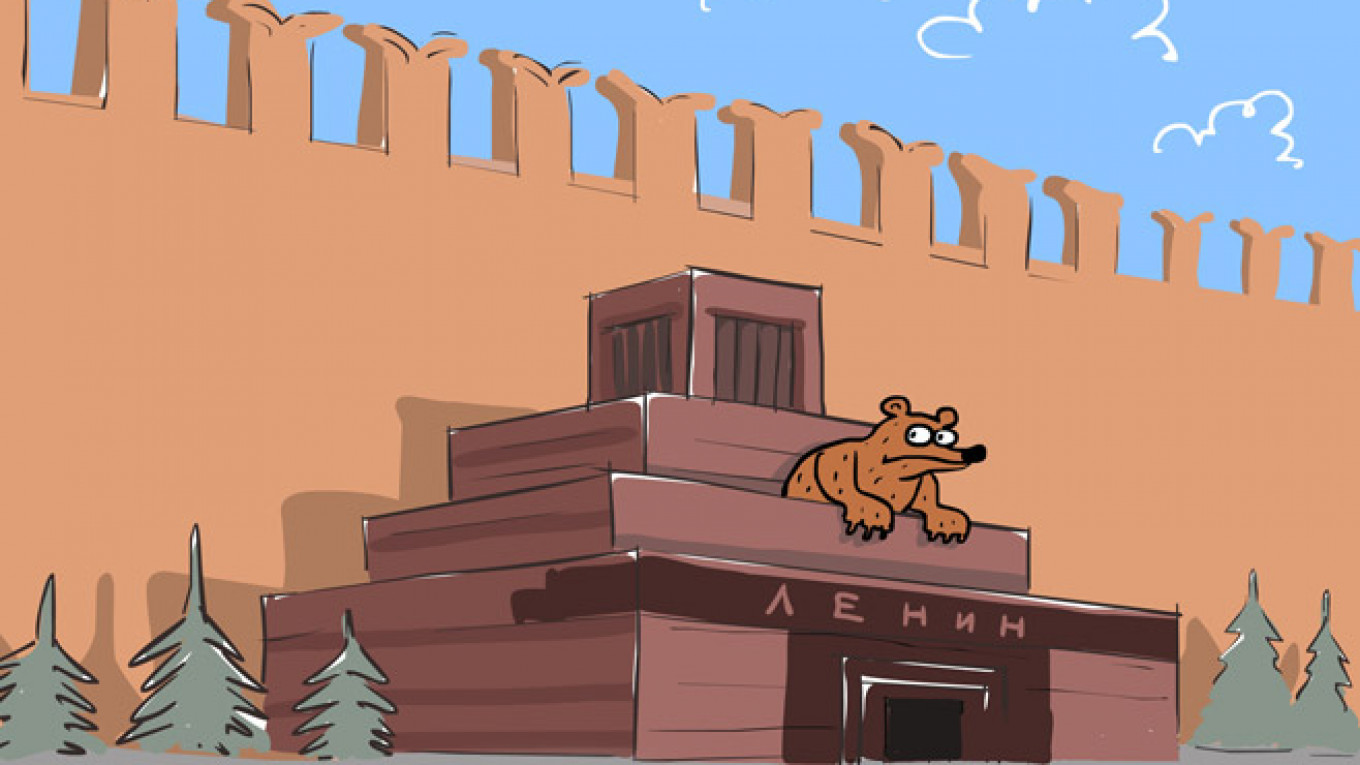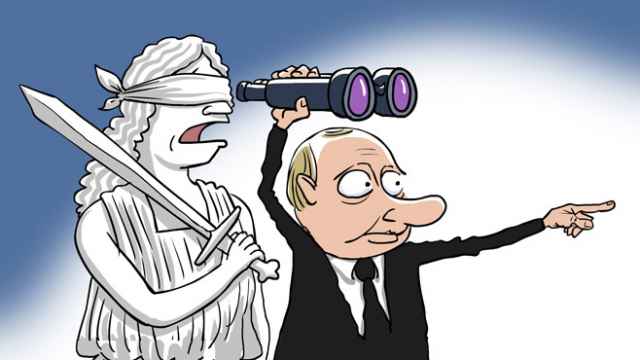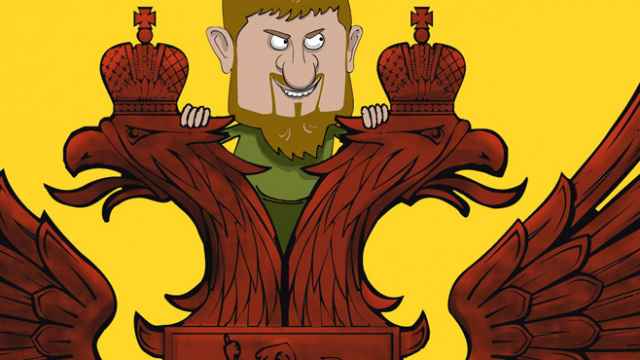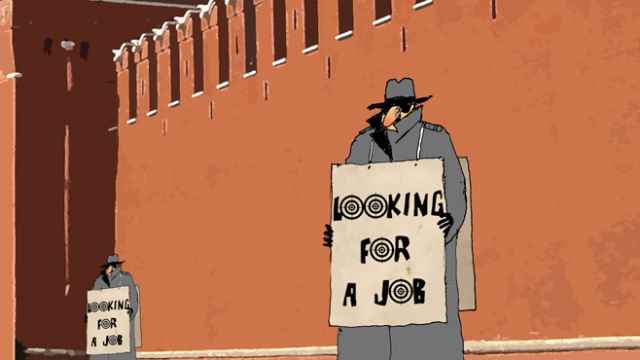Moscow is preparing for the 70th anniversary of the end of the Great Patriotic War. With 16,000 soldiers due to parade on May 9, it'll be quite a party — but there will be quite a number of empty seats at the table as Western leaders stay away.
Even the Czech Republic's famously Russophile President Milos Zeman has been forced to rescind his original decision to attend the actual parade. The aim is to further emphasize Western unhappiness with Moscow's interference in Ukraine, but the outcome may well prove counterproductive.
This is symbolic politics, of course, and symbolism can be very powerful. However, it is crucially important to understand the meanings and impacts if such methods are going to be productive. In this case, that's questionable.
First of all, it plays to a narrative that has served President Vladimir Putin well, that Russia is being belittled and isolated by a petty and hostile West. Chinese leader Xi Jinping will be there, and India's President Pranab Mukherjee. Even North Korea's Kim Jong Un will put in an appearance, making his first foreign visit as leader of his nation.
More specifically, it seems to add weight to the notion — raised by Putin during his call-in show last week — that Washington bullied European countries into following its lead in boycotting the event. This may be false — though it probably contains more than a grain of truth — but it seems to be a view held by many in Moscow, and I have even encountered it among serious foreign policy professionals.
But perhaps most important, this is a measure guaranteed to irritate without either hurting the regime enough to make it take notice or even having any lasting effect.
After all, some sanctions — and this is a sanction of sorts — have a clear and meaningful practical impact. The restrictions on officials associated with the annexation of Crimea and intervention in the Donbass, for example, not only had a real effect on the targets, they explicitly offered a deal: change Russian policy and you can travel again, and access your foreign assets.
Considering that this is the only the Victory Day that celebrates 70 years since the war ended, and probably the last major anniversary at which veterans will be present in any numbers, this is a simple snub, one which will hardly impel Russia to mend its ways.
Nor will the Russians respond at all well to a snub over this event. They are keenly — and rightly — aware of their role in World War II. Without diminishing the importance of British perseverance, or Lend-Lease, or the Western Front, ultimately the war in Europe was fought and won on the Eastern Front. There the Soviets blocked and then broke the Axis powers at extraordinary human cost.
To do anything that seems to diminish this is not simply a snub to the Kremlin, it is a snub to most Russians. In two weeks recently spent in Moscow, no one I talked to about this had sympathy or understanding for the Western position. Even anti-government activists whose main critique of the earlier sanctions were that they did not go far enough express at best bewilderment, at worst outright anger.
After all, while an outsider may wonder quite why a 70-year-old victory is so important for Russia, much the same could be said of Independence Day in the United States ("seriously, that was almost 240 years ago"). No one who has been in the United States on the Fourth of July, though, could doubt the genuine passion behind it.
Victory Day has become symbolic of national unity and triumph for a country that is aware it needs both. It recalls days of superpower status, when the world seemed at Moscow's feet.
It is a chance to honor the veterans, and tellingly as their numbers dwindle, there is the emergence of the "Immortal Regiment" movement in which young people honor fathers and grandfathers who fell in the war, parading with their grainy photographs.
It is also a reaffirmation and reinforcement of national will, something that Putin seems to regard as Russia's ace in the hole. He feels that while the West may have more money, better tanks and a longer reach, NATO and the European Union flounder to achieve a mealymouthed lowest-common-denominator consensus. Putin's Russia is willing and able to act with what it has.
So even without U.S. President Barack Obama, British Prime Minister David Cameron, German Chancellor Angela Merkel and French President Francois Hollande, Victory Day will run its course.
There will be passionate and hyperbolic rhetoric. There will be the latest military hardware clanking and rumbling through Red Square. There will be patriotic songs played over speakers in the metro, and youngsters in wartime caps. There will be veterans wearing their medals and clutching the flowers that children, egged on by proud parents, will thrust at them.
And even Russians embarrassed by their government and angry at its record will wonder just what the West is playing at.
Mark Galeotti is professor of global affairs at New York University.
A Message from The Moscow Times:
Dear readers,
We are facing unprecedented challenges. Russia's Prosecutor General's Office has designated The Moscow Times as an "undesirable" organization, criminalizing our work and putting our staff at risk of prosecution. This follows our earlier unjust labeling as a "foreign agent."
These actions are direct attempts to silence independent journalism in Russia. The authorities claim our work "discredits the decisions of the Russian leadership." We see things differently: we strive to provide accurate, unbiased reporting on Russia.
We, the journalists of The Moscow Times, refuse to be silenced. But to continue our work, we need your help.
Your support, no matter how small, makes a world of difference. If you can, please support us monthly starting from just $2. It's quick to set up, and every contribution makes a significant impact.
By supporting The Moscow Times, you're defending open, independent journalism in the face of repression. Thank you for standing with us.
Remind me later.








